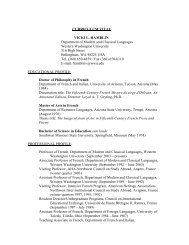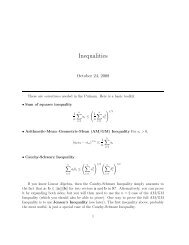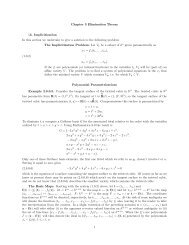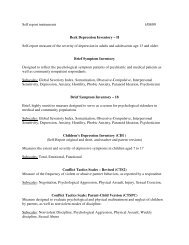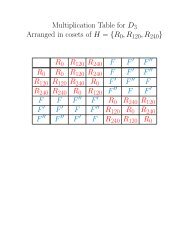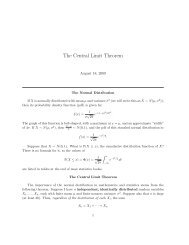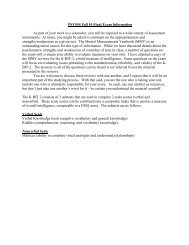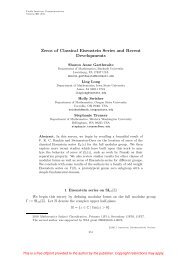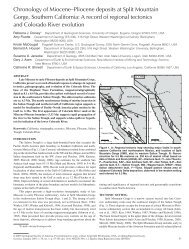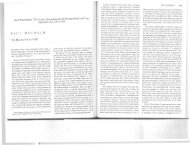Can There Be A Knowledge-First Ethics of Belief? - Western ...
Can There Be A Knowledge-First Ethics of Belief? - Western ...
Can There Be A Knowledge-First Ethics of Belief? - Western ...
Create successful ePaper yourself
Turn your PDF publications into a flip-book with our unique Google optimized e-Paper software.
Evidential Duplication and <strong>Knowledge</strong> Production Theory<br />
(You should believe p) iff (p is believed, via a knowledge-producing<br />
process, by at least one possible person who is your up-to-now<br />
evidential duplicate and your process availability duplicate).<br />
This is the last conjecture I’ll explore. How good is it? It certainly lacks<br />
various details. For instance, it lacks various details about the notion <strong>of</strong> a<br />
knowledge-producing process. Even supposing that we have decided how <strong>of</strong>ten<br />
a process must produce knowledge to count as a “knowledge-producing”<br />
process, it still remains to be settled how those processes are individuated.<br />
That is to say, it still remains to be settled what the conditions are under<br />
which one use <strong>of</strong> a knowledge-producing process counts as a use <strong>of</strong> the same<br />
knowledge-producing process as does another use <strong>of</strong> a knowledge-producing<br />
process. Suppose that you and I both listen to a mathematician tell us<br />
something <strong>of</strong> the form “the mathematical community is absolutely certain<br />
that p”, where “p” is replaced by one sentence for me and a different sentence<br />
(expressing a different proposition) for you. Suppose we both trust<br />
her, so that I come to form the belief expressed by the sentence replacing<br />
“p” in my case, and you come to form the belief expressed by the sentence<br />
replacing “p” in your case.<br />
Did we use the same knowledge-producing process in coming to form our<br />
beliefs? If we didn’t, or if it is in principle possible that we didn’t given<br />
the setup <strong>of</strong> the case, then what makes for (or could in principle make<br />
for) the difference? Such questions surely deserve answers. They are the<br />
analogues <strong>of</strong> the questions standard reliabilists must answer in order to solve<br />
the “generality problem” - the problem <strong>of</strong> individuating belief-producing<br />
processes (as opposed to knowledge-producing processes). It is not clear<br />
how we ought to answer these questions.<br />
Additionally, it is not clear whether our final conjecture can deal with all<br />
the problems <strong>of</strong> the other conjectures. In particular, it may not be able to<br />
deal with slow-thinking Watsons. When Watson does not realize that Smith<br />
is the murderer (or even consider that proposition), and this is only because<br />
Watson is too dim to appreciate the fact that his evidence inculpates Smith,<br />
does Watson have ”available” to him any knowledge-producing processes<br />
which, compatibly with possessing the evidence he actually possesses, can<br />
lead to knowledge that Smith is the murderer? If so, then our final conjecture<br />
25





